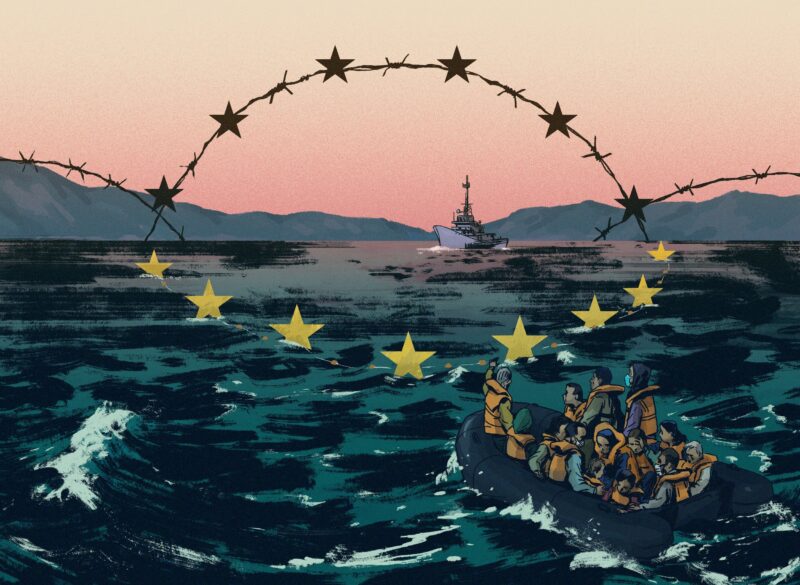
Allegations that immigrants were forced by Greek police to participate in the illegal push back of fellow asylum seekers to Turkey



Serious questions have been raised about Greece`s observance of the principles of the rule of law by the recent revelations of an international media investigation which shows how the Greek state has worked with traffickers to recruit immigrants into working for them to push back asylum seekers, in violation of international law.
The joint investigation by the Guardian, Lighthouse Reports, Le Monde, Der Spiegel, Reporters United and ARD Report München published testimonies from independent sources which reveals how immigrants are forced into work, in at least three police stations in Evros, participating in unlawfully pushing back asylum seekers to Turkey.
It is a well-organized system of pushbacks, in which the “slaves” (as they call themselves), under the supervision of the police, prepare boats to take refugees back to the opposite bank of the Evros. According to the allegations, the immigrants are often stripped, robbed and assaulted.
In addition to the use of immigrants as “slaves,” the revelations indicate that the Greek authorities work with traffickers in Turkey and Evros to bring in migrants who are then forced to work for their crossing by participating in push backs.
A key point of convergence in the sources is the presence and actions of “Mike”. Mike (whose real name is known to the investigation) is from Homs, Syria. He has taken on the role of informal leader in the operations in Neo Cheimonio, acting as a mediator between police officers and the “slaves” who do the pushbacks, often recruiting them and accompanying them on operations. At least until the end of the investigation, the Syrian resided in a container next to the Neo Cheimonio police station, whilst reports implicate him in allegations of theft and violence against asylum seekers that were to be sent back to Turkey.
Mike and his brother, who is also involved in smuggling migrants, face multiple charges in Syria, including smuggling fuel and people. Mike, in fact, already has a conviction.
As a reward for their services, the “slave” immigrants receive a permit from the police, which allows them to stay in Greece for a short time, during which they try to cross into northern Europe.
These testimonies raise the issue of the violation of international law, as the push back, or refoulement, of refugees, according to the former President of the European Court of Human Rights (ECHR) Lino-Alexandre Siciliano, is prohibited by Article 33 of the 1951 Convention on the Status of Refugees, also known as the Geneva Convention.
Despite the seriousness of the reports, neither the police authorities nor the government commented when approached before publication.
In a state governed by the rule of law, the authorities must refrain from illegally repatriating refugees and migrants from their territory. Therefore, and in the context of international law, Greece must ensure effective international protection procedures, which will protect applicants from war, non-democratic regimes and other risks in their countries of origin.
As the UNHCR notes, European law requires that border surveillance measures be implemented in full compliance with human rights and refugee law, including the 1951 Convention, and that states must respect fundamental human rights, such as the right to life and the right to asylum.
Despite the above commitments, these reports, which were not refuted by the Greek government, lead to the conclusion that Greece is violating the Geneva Convention and refugee law.
Bank Account number: 1100 0232 0016 560
IBAN: GR56 0140 1100 1100 0232 0016 560
BIC: CRBAGRAA
![]()
In a time where the very foundations of democracy are gradually being eroded by the rise of extreme nationalism, alt-right movements, the spread of disinformation and corporate capture, the efforts of organisations such as Vouliwatch are more relevant than ever.
We rely on the generosity of each and every one of you to continue with our efforts for more transparency and accounta
By financially supporting Vouliwatch you support our litigation strategy, our campaigns for transparency and accountability in the political system, the development of new civic tech tools, our research projects and last but not least our impartial and accurate